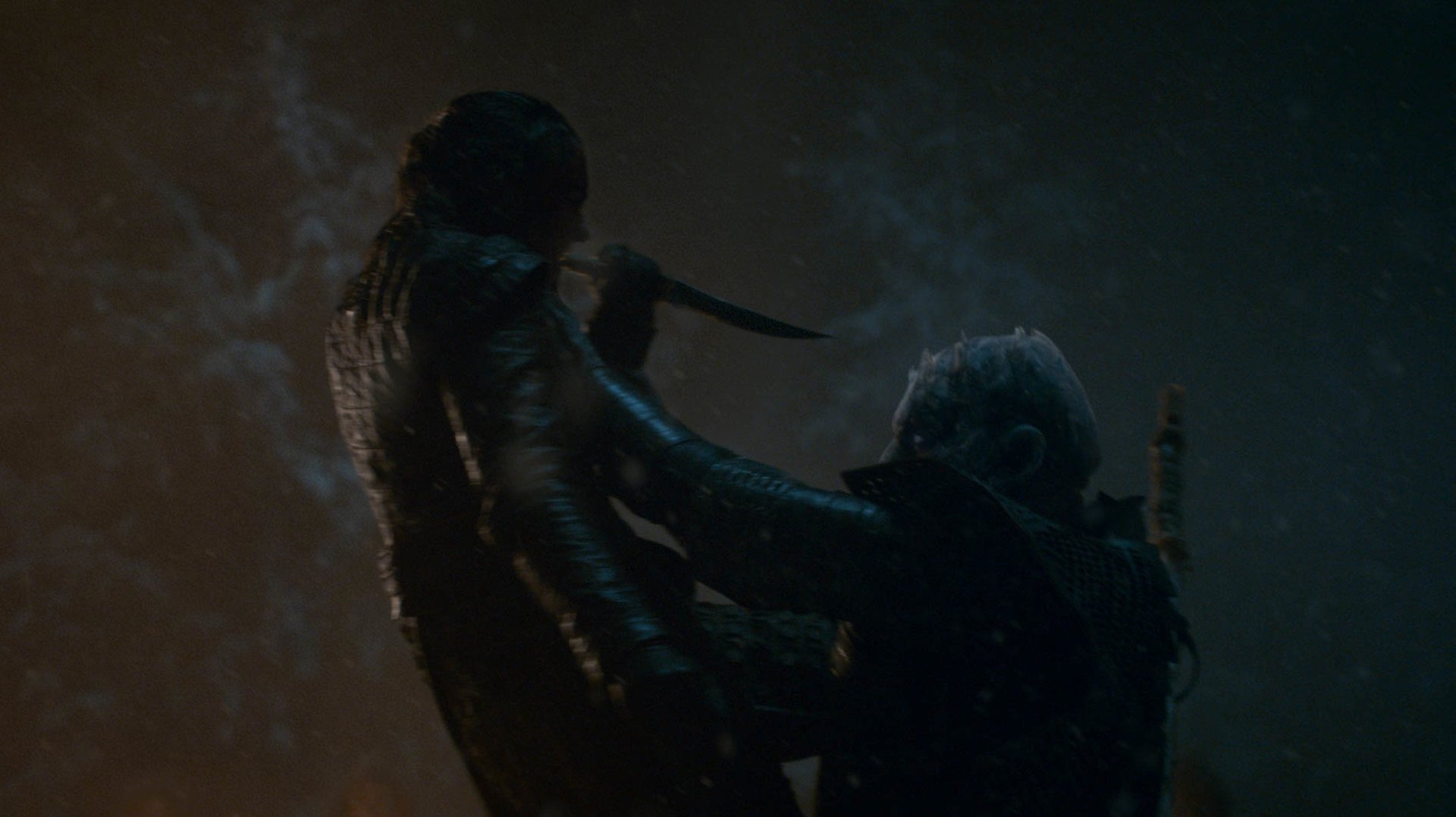The most underappreciated star of “Game of Thrones” is the piano
This story includes plot details from Season 8, Episode 3 (“The Long Night”) of HBO’s Game of Thrones.


This story includes plot details from Season 8, Episode 3 (“The Long Night”) of HBO’s Game of Thrones.
With one well-timed thrust of her Valyrian steel dagger, Arya Stark defeated the Night King and his army, winning the Battle of Winterfell for the living over the dead. But it was an even more unlikely hero that helped make her moment such a huge success on-screen: the piano.
Game of Thrones and composer Ramin Djawadi do not usually enlist the services of the piano. Djawadi instead prefers sweeping pieces performed by an orchestra to match the epic scale of the HBO fantasy series. Take its iconic theme music: Only the rich strings, pounding drums, and blaring brass of a full orchestra can do that justice.
At the end of last week’s big battle episode, however, Djawadi knew that the moment called for something different. “Having gone through all this battle music, you get to that point with the piano and it’s just really sad, once you hear the piano you think, ‘This is it, it’s over for our beloved characters,'” Djawadi told Variety.
Indeed, the track, called “The Night King,” comes in right as things look truly hopeless. Jorah Mormont is being repeatedly stabbed defending Daenerys Targaryen, Jon Snow is having a very close encounter with an evil dragon, and the Night King himself is coolly strolling over to Bran Stark to kill him and thereby erase all memory of the living world.
The nine-minute track starts with, and is dominated by, piano. Djawadi does add strings and other instruments to the piece, but the piano carries the melody for most of its duration. Eventually, the piano joins with the strings as Arya leaps out of the darkness toward her target.
It works so well precisely because Thrones rarely uses the instrument. The first, and only, other time the show featured the piano is in the track “Light of the Seven,” played in the season six finale when Cersei Lannister arranges the destruction of the Sept—and the murder of everyone in it. That sequence remains one of the show’s most effective throughout its 10-year run:
Djawadi wanted “The Night King” and the end of the Battle of Winterfell to draw a sonic parallel to that eerie moment from the season six finale. Both sequences feature very little dialogue—the piano is doing a lot of narrative heavy lifting. But while the piano presaged a catastrophe in season six, in this week’s episode it wound up doing the opposite. Pitchfork explains how Djawadi’s piano subverted viewers expectations this time around:
It was a beautiful extended moment, with that piano score creating a psychic link to the carnage of “Light of the Seven.” It prepared us to say goodbye, but the inverse occurred; the ruler went down while the masses—at least most of those high up on the episode’s call-sheet—stayed standing. Djawadi lit his flaming arrow, let it shudder for a minute, suspended in a state of stress, before letting it loose with perfect aim. Like Cersei’s impending threat, the score was invisible but impossible to ignore.
Both moments underscore how effective a single music cue—or in this case, one instrument—can be in evoking tension and dread. Game of Thrones viewers, whether they’re conscious of it or not, are now conditioned to expect something of great importance whenever those piano plinks surface. With only three episodes of the hit series left, we may not get any more piano pieces, but at least it’s already given us two of the greatest sequences in the show’s history.
You can listen to “The Night King” and “Light of the Seven” on repeat on Spotify.